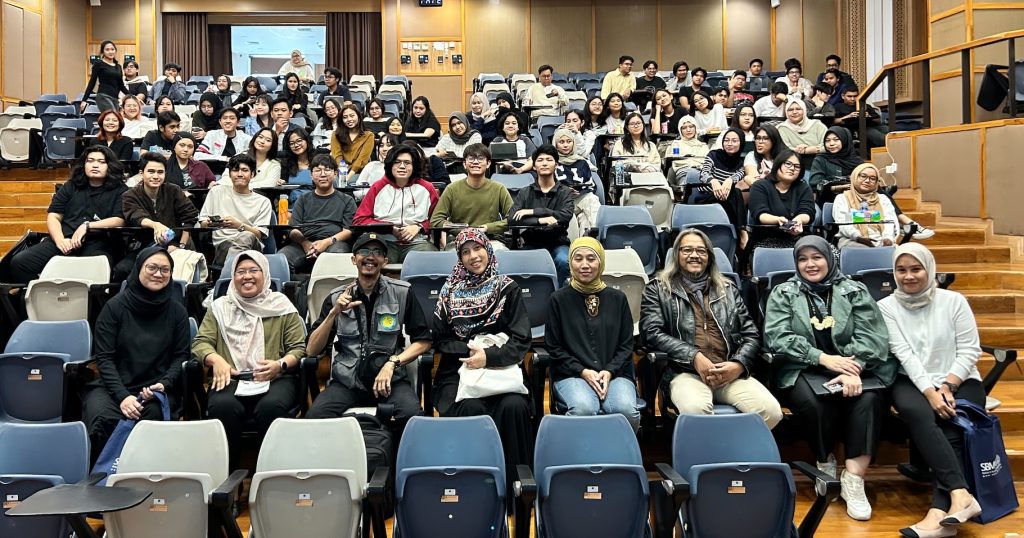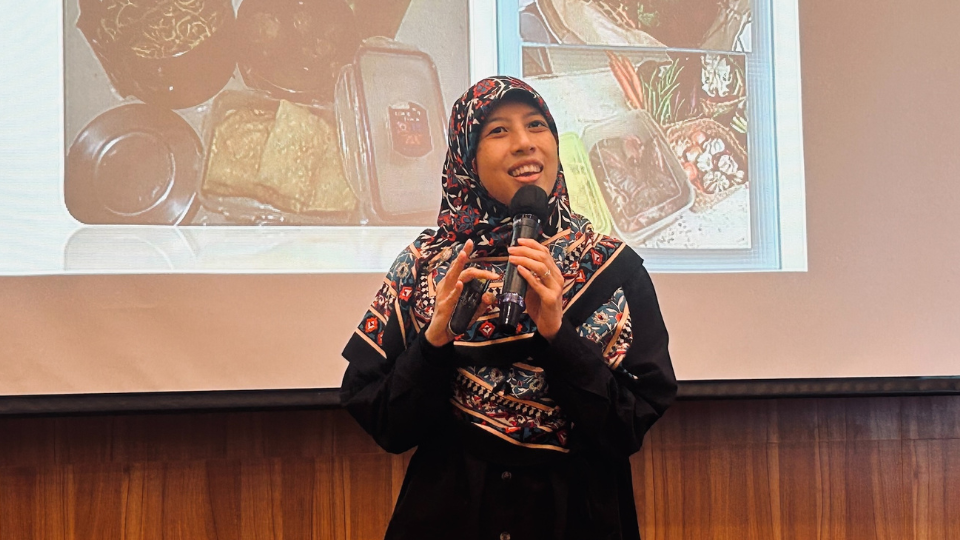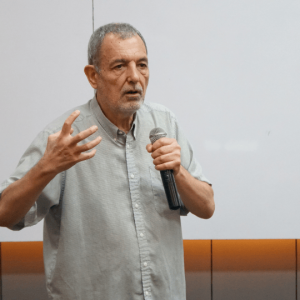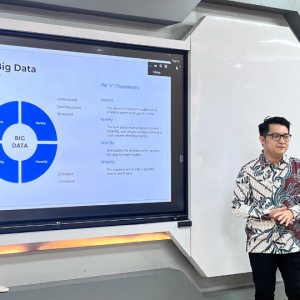SBM ITB, through its Environmental Management System (EMS) course, launched an innovative program called Circular Dago on Friday (12/7). This initiative aims to engage all sectors of society, including local government, universities, community leaders, and related institutions, in creating a resilient and clean environment in Dago, Bandung.
Various Non-Governmental Organizations (NGOs) were invited to share their stories and experiences in beautifying the Dago environment. The event commenced with a presentation by Arif Widyanto, Founder of Pokja Eling, and his secretary, Dini Rachmawati. They shared their vision of restoring Dago’s environmental productivity by prioritizing cleanliness and fostering local community creativity, which can stimulate the growth of ecotourism.
“We aim to leverage natural social behavior and appropriate methods to reduce environmental waste. Choosing the right methods and technology is crucial for creating effective programs,” said Arif Widyanto.
Next, Adi Rosadi Sapari from the Cika-Cika Community waste processing division explained the Imah Maggot Bantaran (IMB) program, which uses maggots to decompose organic waste in Bandung, especially along the Cikapundung River.
“Maggots can consume up to three times their body weight in organic waste daily. With a protein content of up to 40%, they can also serve as an effective soil fertilizer,” explained Kang Adi.
Isti Khairani, Founder of Bumi Inspirasi Waste Bank, emphasized categorizing waste into organic, inorganic, and 3B (Useful Used Goods). She highlighted the need for collaboration to create more impactful waste management programs.
Through this guest lecture and the Circular Dago program, SBM ITB hopes to inspire students to initiate new movements through creative collaboration. This effort aims to engage Dago’s young generation in waste management and the application of appropriate technologies. Integrating waste management with the local economy of Dago is expected to bring about significant positive changes for the environment.






